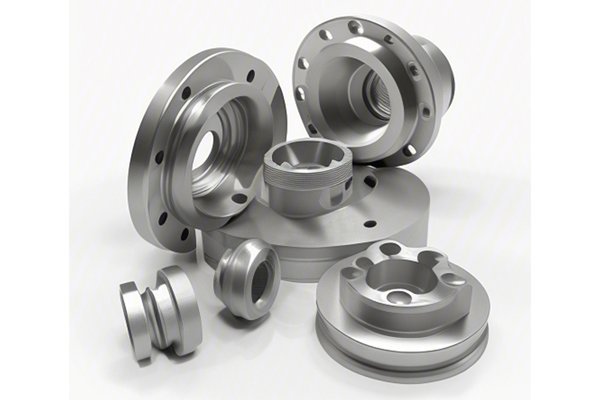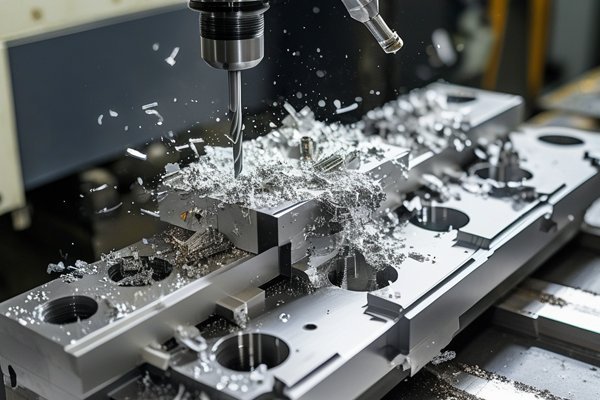: The Unseen Hand Behind Precision Engineering
Did you know that nearly 70% of manufacturers believe that maintaining a high standard of precision is crucial for surviving in the demanding world of modern engineering? In today’s fast-paced market, where efficiency and quality reign supreme, obtaining high-quality CNC certification has never been more significant. For companies already immersed in CNC (Computer Numerical Control) operations, or those considering adopting these technologies, understanding the myriad benefits of CNC certification can provide a competitive edge that is impossible to overlook.
As businesses strive for excellence in precision machining, the idea of certification often emerges—yet what does it truly mean? Why should manufacturers invest time and resources into obtaining a CNC certification? In this comprehensive blog, we will delve deep into the multiple dimensions of high-quality CNC certification, exploring its necessity, advantages, and the process involved for achieving it.
1.1 What is CNC Certification?
CNC certification is a formal acknowledgment issued by certifying bodies in recognition of a company’s adherence to specific standards that ensure precision in the machining process. This certification validates that a company follows industry best practices in its operations, which includes employing skilled technicians, using precise equipment, implementing quality control measures, and maintaining safety protocols.
1.2 Why is CNC Certification Essential?
Having CNC certification not only enhances a company’s reputation but also builds trust with clients, stakeholders, and end-users. It signifies that the manufacturer has passed stringent quality control tests and is compliant with industry standards. Furthermore, it also reflects a commitment to continual improvement and excellence—a desired trait in today’s competitive landscape.
2.1 Enhanced Quality Control
One of the core benefits of high-quality CNC certification is improved quality control mechanisms. Certified organizations often adopt rigorous testing protocols and quality checks. This ensures that every product manufactured meets the expected specifications and quality standards, reducing defects and waste. As a result, companies can achieve higher precision in their parts, leading to greater customer satisfaction.
2.2 Increased Operational Efficiency
With a certified CNC operation, manufacturers can streamline their processes to reduce waste and inefficiencies. Certification often requires businesses to analyze their procedures critically and adjust them for better productivity. Enhanced efficiency translates into reduced costs and quicker turnaround times—benefits that ultimately reflect in the company’s profits.
2.3 Competitive Advantage
In a marketplace saturated with options, standing out becomes crucial. High-quality CNC certification serves as a unique selling point that can differentiate one manufacturer from another. Clients are more likely to select a certified provider when purchasing precision parts, knowing that the company has met recognized standards for quality and reliability.
2.4 Access to New Markets
Many clients, especially in sectors like aerospace, automotive, and medical, require suppliers to have specific certifications. Gaining high-quality CNC certification widens your customer base, allowing entry into these high-value markets. This, in itself, presents an opportunity for increased sales and business growth.
2.5 Better Employee Engagement
A culture of excellence associated with certification creates an environment where employees feel valued and engaged. Training programs related to certification ensure that your workforce is skilled and knowledgeable about the latest industry practices and technologies, boosting motivation and satisfaction levels.
2.6 Improved Safety Standards
The certification process often includes rigorous safety standards that protect the well-being of employees. By implementing these safety measures, companies minimize workplace incidents, reduce liability, and create a more secure environment for their workforce.
3.1 Preparation for Certification
Now that we’ve discussed the benefits, let’s look at how a company can achieve CNC certification. The first step is preparation. This includes understanding the specific requirements laid out by the certifying body. Companies should conduct internal audits to determine areas of compliance and areas needing improvement.
3.2 Employee Training
Training is crucial for ensuring that staff is knowledgeable about the processes and standards required for certification. This could include workshops, seminars, and hands-on training sessions, aimed at enhancing both skill sets and an understanding of the certification criteria.
3.3 Documentation and Record-Keeping

Accurate and thorough documentation is a keystone of the certification process. Companies must maintain detailed records of their processes, quality control measures, and compliance with standards. This not only aids in achieving certification but also improves overall operational transparency.
3.4 Application and Auditing
Once a company feels prepared, it can submit its application for certification. This includes providing all documentation to the certifying body. The next step is to undergo an external audit, where auditors will assess compliance, review documentation, and conduct site inspections.
3.5 Achieving Certification
Upon successful completion of the audit, the certifying body will issue a certification. However, obtaining the certification is only the beginning. Companies must continually monitor their processes and maintain compliance to keep their certification valid.
4.1 Regular Internal Audits
Post-certification, companies should implement regular internal audits to ensure ongoing compliance. This encourages continuous improvement and prevents any lapses in quality standards.
4.2 Continuous Employee Training
To stay ahead, organizations should invest in ongoing training programs for staff to keep them updated on best practices, new technologies, and industry standards.
4.3 Customer Feedback Systems
Implementing systems to collect customer feedback can provide insights into areas needing improvement. This will assist organizations in maintaining high standards of quality and service.
5.1 A Leading Aerospace Manufacturer
One of the most recognized benefits of high-quality CNC certification can be seen in the operations of a leading aerospace manufacturer. With rigorous adherence to standards and practices, this company reported a 30% reduction in waste due to improved quality control, leading to significant savings and enhanced customer satisfaction.
5.2 Medical Device Supplier
A medical device supplier achieved compliance with stringent regulatory certifications, allowing them access to the much-coveted medical market. Their high-quality CNC certification made them a trusted resource, and they were able to grow their revenue by more than 50% within two years of receiving certification.
6.1 Trends in CNC Technology
As technology advances, so do CNC machining techniques and standards. The introduction of AI, IoT, and other digital innovations present new opportunities for precision and efficiency in machining.
6.2 Evolving Certification Standards
With these advancements, certification standards will evolve. Companies must remain adaptable and proactive to ensure compliance with new standards, staying competitive and relevant in the ever-changing market landscape.
: Certifying Your Way to Success
In summary, high-quality CNC certification is not merely a stamp of approval; it is a vital component that can transform an organization’s operations. Enhanced quality control, increased efficiency, and a competitive edge are just a few of the many benefits that come hand-in-hand with certification. As the industry continues to evolve, staying compliant and committed to excellence is essential.
Ultimately, obtaining CNC certification is an investment that can lead to sustainable growth and success in precision machining. For manufacturers, it’s worth considering not just the benefits of certification but the commitment to a culture of quality and constant improvement. Embracing this journey will ensure that your company is not just another player in the market, but a leader in innovation and precision.
By recognizing its importance and worth, manufacturers can position themselves for a brighter and more profitable future, unlocking the full potential of their CNC operations.






